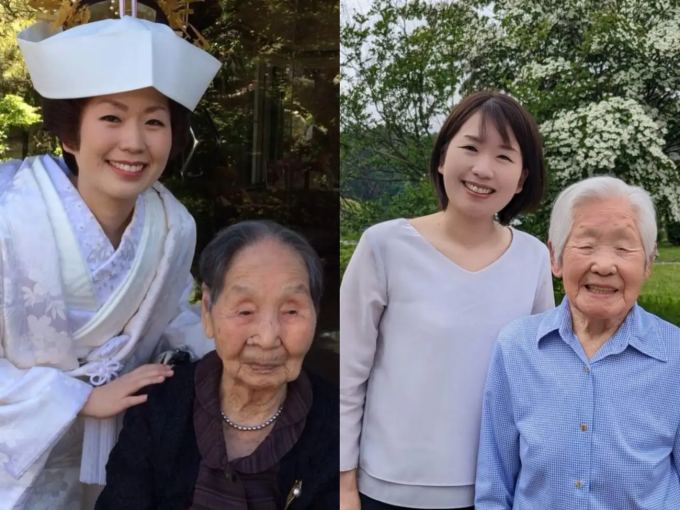Shigeyo Nakachi, once the second oldest person in Japan, lived a long life thanks to her perseverance in maintaining habits, being disciplined, doing everything in moderation and not being stressed.
She died in 2021 at the age of 115. Yumi Yamamoto, Nakachi's great-granddaughter, is the Japan research chair for Longevi Quest, an organization that regularly verifies the ages of the world's oldest people.
Yamamoto gathered a lot of advice for longevity by talking to his great-grandmother and centenarians every day.
Stick to the habit
Most of the people who are one hundred years old or older that Yamamoto has met have maintained their lifestyle habits for a long time.
Some of their healthy habits include daily exercise and prioritizing connecting with people around them over focusing too much on work. Nakachi also maintains regular exercise and healthy eating habits for decades.
According to Yamamoto, it's the consistent practice of habits that helps prolong life, whether that habit is working, drinking a glass of sake, or climbing the stairs a few times a day.
Disciplined
Having good self-discipline helps maintain a consistent routine. Yamamoto says this was an important part of her great-grandmother's life.
"My great-grandmother was very disciplined and strict with herself. I think her neat and disciplined lifestyle may have contributed to her longevity," Yamamoto said.
The Super Longevity people she talked to were also disciplined and strict in their eating and sleeping habits.
“They won’t overeat, sleep too little or too much,” she says.

Yumi Yamamoto with her great-grandmother Shigeyo Nakachi (left), the second oldest person alive in Japan in 2021, and Shitsui Hakoishi, the world's oldest barber (right). Photo: LongeviQuest
Do everything in moderation
Although centenarians in Japan are very disciplined, they still allow themselves to indulge in controlled ways.
While “normal people” may not be able to resist a whole bar of chocolate, many centenarians will never finish a bar. The Japanese custom of “hara hachi bu,” which means eating only until you are 80% full, reinforces this behavior among Supercentenarians.
However, they also don't force themselves to do anything they don't want to.
“It's a way to have balance and maintain routine in life,” says Yamamoto.
For example, her great-grandmother was very disciplined in other areas of her life, but still occasionally ate fish, milk, yogurt, and dairy products, even though these were foods she disliked.
Live optimistically, reduce stress
The final piece of advice Yamamoto shares is one that many other centenarians and centenarians say: Don't stress too much.
“Don’t put yourself in an environment that is too stressful or too overwhelming,” Yamamoto said, adding that her great-grandmother always maintained a balanced state of mind, remaining calm and composed, regardless of what was going on around her.
A new study conducted by experts at the US Department of Veterans Affairs, with the participation of more than 700,000 volunteers, estimates that up to 90% of diseases are caused by stress. The harmful effects of chronic stress include insomnia, hair loss, headaches, and dangerous internal inflammation.
In another study published in the Journal of the American Geriatrics Society in 2022, Harvard University experts found a link between optimism and longevity (90 years and older). Scientists followed nearly 160,000 women aged 50 to 79 for 26 years. Volunteers were asked to fill out a questionnaire, and their optimism was ranked by score.
The results showed that women with high levels of optimism lived longer, more likely to reach their 90s than those with low levels of optimism. The results remained the same after the experts took into account factors such as education, economic status and ethnicity.
Khanh Linh (According to Business Insider )
Source link



































































































Comment (0)